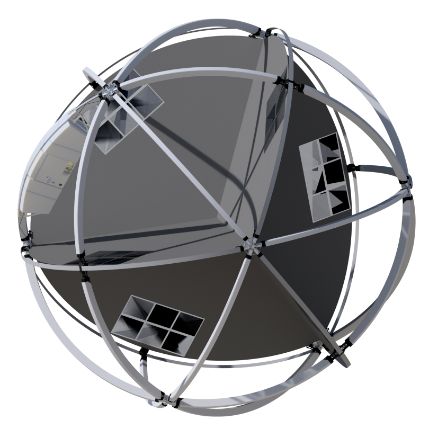The Tumbleweed V3 Prototype rolling across the Negev desert, Israel, during the AMADEE20 Mars Analogous Mission. Video credits: ÖWF
The Tumbleweed V3 Prototype rolling across the Negev desert, Israel, during the AMADEE20 Mars Analogous Mission. Video credits: ÖWF

The Tumbleweed rover V3 gets its characteristic shape from its numerous arcs, creating the 5-meter-diameter-sphere. Its six tetrahedrally arranged sails ensure optimal air-resistance and maximize the Tumbleweeds’ area of coverage. On these sails, solar cells harness the Sun’s power for the rover’s electronics while additionally charging a battery for night-time operations. The Tumbleweed rover gathers data using a wide array of sensors such as barometers and hygrometers, as well as high-resolution cameras. These can be integrated into the rover’s payload bays. Further features include a collapse mechanism for transport to Mars as well as omnidirectional antennas for communication.
Seven of our subteams actively work on improving the Tumbleweed rover’s different aspects, from the outer structure to the software necessary coordinating the payloads. The Aerospace Engineering team in Vienna completed a prototype of the Tumbleweed V3 in the summer of 2020, measuring in at a diameter of 2.5 m. This prototype was additionally tested in a Mars Analogous Mission in the Negev desert in 2021.
This website uses cookies. By continuing to our site you give permission to this website to use necessary cookies. You can learn more in our Privacy Policy.